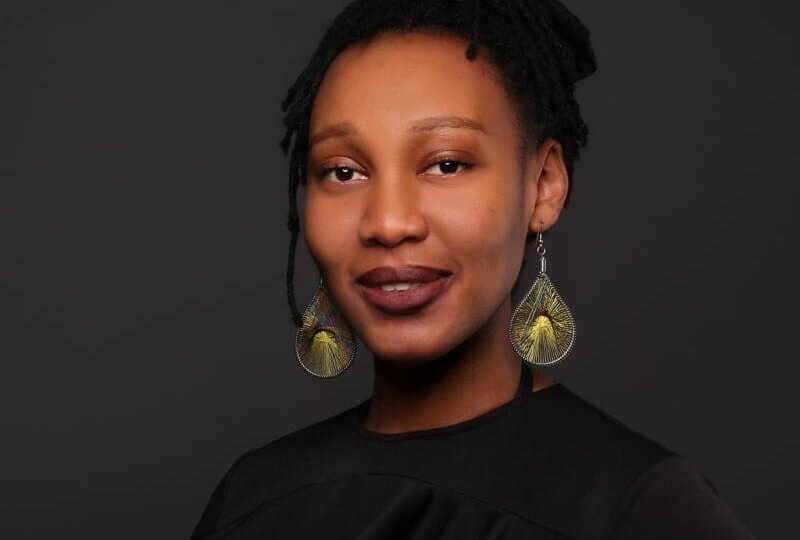The Elite Network of Bavaria master’s programme “Global Change Ecology” (GCE) started in 2006 at the University of Bayreuth. Since then, several GCE students have already completed their master´s degree. Interested to know about the career development and lives of our alumni, we started the GCE Alumni series of interviews last year. Here we cover inspiring stories and the motivation behind these special people who were and will always be a part of our GCE family.
Our eleventh interviewee is Eva Ntara, who was born in Kenya and started to study GCE in 2017.
Why did you decide to study GCE?
It was actually a combination of two main reasons:
1) During my third year of studying a Bachelors in Land Resource Planning and Management in Nairobi, Kenya I took part in a 3 months internship in Freising, Germany through the International Association for the Exchange of Students for Technical Experience (IAESTE). I was under the supervision of the Hochschule Weihenstephan Triesdorf peatlands research team and was fascinated by the excellent work ethics displayed by their team members. It was this experience that opened my mind to the possibility of studying in Germany.
2) Upon my return to Nairobi, I carried out an extensive survey of master programs that I could take in Germany. I felt that my bachelors gave me sufficient knowledge of how natural resources are managed only in my country and/or region. What I needed was a perspective on how environmental issues are managed and interlinked globally. Hence once I came across the GCE study program, it was a perfect match as it fit all the criteria.
What did you like most about GCE?
If I could use one word-it would be flexibility. The GCE program gave me the choice to select the modules-environmental, societal or ecological- which I could specialize in. It was through this flexibility that I pursued my passion towards peatland management and how it is affected especially by human activities. Notably, the opportunities available through the program such as participating in class seminars, internships, summer/winter schools, elite network of Bavaria seminars, and conferences, broadened my mindset while expanding my social and professional networks. The interactive activities with classmates, lecturers, and colleagues from around the world inspired me to start thinking of home-grown solutions for global challenges such as climate change.
How has your career continued after GCE?
Upon finishing my master thesis, I applied and got accepted for a 6 months internship in the Forestry Department at the Food and Agriculture Organization of the United Nations in Rome, Italy. After completing my internship, I was given another contract as a consultant working in the same department.
What is your current position? What are your tasks?
Fire Management, Peatlands and Climate Change Specialist at FAO.
My roles and responsibilities include:
-Support to finalize the organization of the fire danger rating workshop for Indonesia; collect lessons learned and manage generated knowledge to be shared;
-Produce materials as a result of the work for Indonesia; such as concept notes, guidance materials, best practice brief, and workshop results documents;
-Continue to liaise and support consultation efforts with Kenya land and fire management agencies, under the guidance of FAO-Kenya to finalize the preliminary report on fire management in Kenya and then promote discussions on findings obtained from the report with a view to exploring potential for further activities and potential projects;
-Finalize a draft concept for a fire management portal based on the existing and further review of data collection, management, validation and analysis of fire resource materials;
-Continue to collate fire emission factors for Indonesia and/or tropical regions for use in the EX-ACT tool;
-Support a review of emissions from fires, with an emphasis on peatlands, continuing the work that was initiated in 2020;
-Consider the options for including fire emissions into reporting GHG;
-Support to the planning and preparation of the World Forestry Congress (WFC) Forest Fire Forum
-Any other related activities, as required.
How has GCE supported your career?
For me it is the opportunities that arose from GCE that made it possible for me to apply and be accepted for an internship position at FAO. As an alumna, I still receive emails from the GCE student coordination occasionally providing links to available opportunities such as PhD positions, courses, or conferences which I find helpful.
What do you recommend to the current GCE students?
I have 3 recommendations; 1) Find your unique mix of modules and specialize in what you are truly passionate about, 2) Maximize on the opportunities that GCE presents to you-for instance the possibilities of attending summer/winter schools, conferences, internships, semester exchanges abroad and doing your master thesis with external organizations, and 3) Find time to interact with your course mates as well as other students doing different courses within the University of Bayreuth as this will enhance your intercultural skills.










How can one apply for the program
Dear Angela, to apply for the MSc Global Change Ecology, you should follow the application process described on the main website of the program http://www.global-change-ecology.de/ , the deadline is the 15th of June for every winter term. =D All the best!
very good thanks
good article
goooooooooooooooood